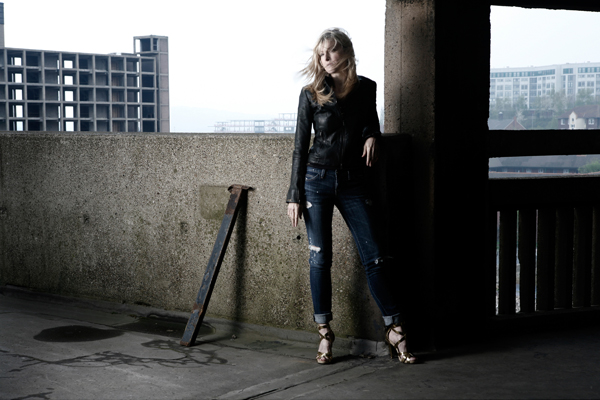
“A term like ‘wonky,’ I mean it’s just hideous, disgusting and it’s really dumbing down what people do as producers,†says Mary Anne Hobbs during a phone interview in late August. Yes, even the queen of bass hates “wonky,†“funky†and all the silly terms that the UK press (and their U.S. imitators) have devised to describe this new sound. But all the nomenclature is just evidence that “beats†(as L.A. heads call them) have grown into a worldwide movement and perhaps the most important electronic development since the IDM and minimal styles of the early millennium. As it courses deeper into the sound of the era, those who adopt it take it on new, unexpected and sometimes irritating paths.
Few have done more to support that growth than Miss Hobbs. Every Wednesday at 2 a.m., she broadcasts the “Experimental” show (formerly known as “Breezeblock”) on BBC Radio 1 in the UK, spinning new tunes by familiar (Kode 9, Hudson Mohawke) and relatively unknown (Joy Orbison, Pearson Sound) producers from around the world. Her programs, streamed from the BBC website and quickly ripped and traded across the Internet, have exposed a generation to the new bass beats, or dubstep, or glitch, or instrumental hip hop, or whatever you call it…
At any rate, it’s a new aesthetic that she’s championing. She’s become associated with it much in the way Gilles Peterson, her colleague at Radio 1, was closely linked with the new funk, future jazz, broken beat and deep house in the late 90s. While Peterson pushed that connection through several compilations, Hobbs’ has assembled just three so far: 2007’s Warrior Dubz, 2008’s Evangeline and the just-released Wild Angels.
Issued by Planet Mu on September 8, Wild Angels is the first with American distribution, a sign of her growing profile to progressive music fans here. (The others were available via import.) She’s embarked on a few U.S. DJ tours this year, taking special care with Los Angeles and its hugely influential “beats†scene. I’ve often written about my admiration for L.A.’s music scene in general, and Flying Lotus in particular, and Hobbs is unstinting in her praise of as well. “[Lotus] seems very much as a patriarchal figure, if you like, on the West Coast, himself and Daddy Kev, who runs Low End Theory,†she says. “You can see their love, their cherishing, their nurturing and their support of this family of producers.â€
Yes, Miss Hobbs is an unapologetic optimist, a music lover who stopped doing journalism for Sounds, NME and other august UK outlets because she found it too “abrasive.†Of course, I love that sort of thing, but decided to use my conversation to get her thoughts on the “beats†and “dubstep†scenes in general. In fact, we didn’t even get a chance to talk about her Wild Angels, which surveys new evolutions beyond the name brands, with memorable tracks from Mono/Poly, current sensation Untold and many others. “You will get a sense of the type of trajectories shooting out from different tangents from these core genre sounds,†she says of the compilation. “There is a nice, easy flow of sound.â€
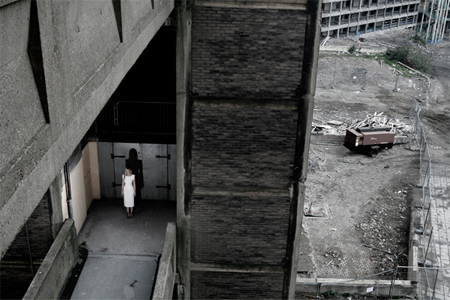
Plug One: There are a lot of different phrases that people use to describe this music, like “lazer bass,†“wonky,†“funky†and dubstep. What’s the phrase that you use to describe it all?
Mary Anne Hobbs: Okay, I’m going to be contentious now, and I’m going to say to you for me, there is no word to describe it whatsoever. There is no phrase, there is no saying, and there is no emblem. And I think that is exactly the way that the producers like it. Almost as soon as you stick a name in it, and you stick a flag in it, it ceases to be able to progress and form a really fascinating trajectory.
It’s interesting, because I’ve asked a lot of the producers the same question: “Do you have a name for this? What do you call it? How do you want it to be represented?†And none of them can actually answer me. And given the fact that it’s their sound, they should be able to define it for themselves. I think also, too, they love that sense of freedom, that sense that it’s not easy to nail it to the floor, and for all of us who are involved in the media, they like to shimmy out from underneath us and move forward. I think that’s really healthy, that’s really progressive.
Plug One: One thing I’ve noticed, as someone from the U.S., is that the UK likes to classify different styles. Whenever some new evolution in music happens – especially electronic music – they like to put a little name on it. Why is that?
Mary Anne Hobbs: To be honest, I think the media needs to name everything because it makes things easier to market.
But you’re right: The British are the worst! There was a point at which British journalists tried to subdivide the dubstep genres, and all the producers just balked immediately and said, “You know what it is? We’re one big family. Dubstep is a terrible name anyway, but as it exists just leave it in place and all of us can operate loosely under the same umbrella, and that will do for now.†So the subdivisions of dubstep never actually took root, which is probably a good thing.
But I guess if you’re trying to flog a magazine, or if you try to make sense of anything, or if you try to quantify something, and direct a particular generation or age group or audience towards something, then it’s probably easy to put a name on it.
Plug One: I feel like all this naming stuff is a way to separate the music from its soul roots, or R&B roots. This particular sound in general has a really strong hip hop and R&B base, more so than some other electronic genres, but it seems like all the naming pulls it away from that.
Mary Anne Hobbs: Yeah, I think so. I think a lot of it is very ugly as well. I think it doesn’t correlate at all with the aesthetic of the sound. Particularly a term like “wonky,†I mean it’s just hideous, disgusting and it’s really dumbing down what people do as producers. I mean, the type of absolutely exquisite music that people are making doesn’t correlate with a term like “wonky.†You just say, god, who on earth invented that? It sounds like something that McDonald’s would throw forward as a new dessert. It’s not something at all that should be associated with this type of deep and sophisticated sound. Do you?
Plug One: No, I hate that word.
Mary Anne Hobbs: Hmm. I’m glad!
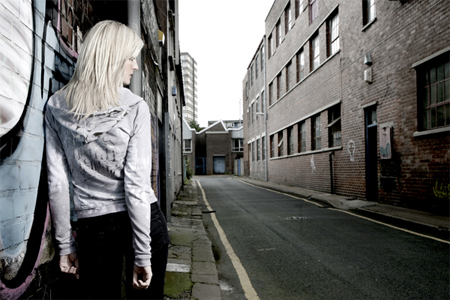
Plug One: Well, just to backtrack a little bit…I know that you’ve been active on the UK music scene for some time. Can you explain briefly how your career developed to this point?
Mary Anne Hobbs: Well…I’ll give you a few good stories. I’ll give you hop and a skip over my life, how’s that?
When I was a little kid, I was completely obsessed with punk. I used to go to a record store – well, it wasn’t a record store, it was more like a toy shop – where you would order records. And it used to take nine weeks for a record to come in. And we used to order all the Sex Pistols and stuff. My dad was a completely violent alcoholic, and he used to smash everything to bits. So it was difficult to build up any sort of collection. But the only thing he never found was this tiny transistor radio that I had. And I used to listen at night under the bed clothes, scrolling across the dial in the middle of the night to try to find John Peel, who, I’m sure you know, was a legendary British broadcaster who put together the most incredible program. It was absolutely the gateway to another world for me, completely. It made me realize in the tiny little village where I grew up in that was maybe 1000 people strong, literally like a dot on the landscape, that there was another world. Somewhere there was this beautiful place, like this glittering bauble, and I wanted to try to reach it.
So, to cut a long story short, at the age of 18 I ran away to London, and I went to live on a bus. I lived on a bus in a parking lot for a year with a band. We all worked shitty day jobs in factories. We used to live on a bag of French fries a day, and we saved up all our money that we had to fix this bus, repair the backline, and book the tours that we’d go on. In those days you had to pay to play as well. You’d get a bottle of Budweiser and five straws at the end of the night if you were really lucky.
Being a writer, I always wanted to be a music journalist. There was a paper in the UK at the time called Sounds. It was a real touchstone for me as a kid; all I had was John Peel and Sounds newspaper. It was always my dream to write for this paper. So I thought to myself, what would the editor of Sounds want to see? What should I do? It only ever occured to me that I would need to show that I worked for a band, which is what I did. So I sent this crazy CV to him detailing all of my responsibilities to the band. I explained that I lived on a bus, and I’d been on the road for a year, and I was their lighting designer and costume designer, painted their backdrops and fixed the bus. And something in his heart must have made him think to himself, Jesus Christ, this girl is pretty different, ha ha! So he invited me in and gave me a job at 19.
So I became a writer for many years. I was writing for Sounds to begin with, and then NME for a long time (which still exists, it’s the oldest music newspaper in the UK), and various different types of glossy magazines and stuff.
I got a couple of breaks in radio, mainly doing different guest spots on people’s shows and stuff. It built up from there. That’s the back story to where I am today, I suppose.
Plug One: Specifically, I’m wondering how you got from covering pop music in general, to beat music, and to bass-oriented beat music. I remember that you appeared on Mr. Scruff’s album Keep It Unreal…
Mary Anne Hobbs: Yeah, that’s right. That was a little session that Mr. Scruff did. I hadn’t realized that he’d sampled that little vocal part.
But yeah, the show for me has always been a journey. It’s been a fascinating causeway that evolves and progresses every day, every hour, every moment of my life, I suppose.
I guess in the last couple of years or so, the advent of MySpace and the opening up of the Internet in the way that it has done – we’re a little bit behind in the UK, I know it probably happened a little bit faster in America – but certainly in the UK in the last two or three years that the whole thing has completely changed the landscape of what I do. It’s totally, totally changed. And the way that globalization has taken place has been a complete revelation to me. The degree of separation now between myself and artists I want to deal with has been reduced to nothing, which is really brilliant.
Also, technology, in terms of the way that production technology has evolved, has just been so liberating for so many artists. They can make beats on a PlayStation now. It’s all born out of gaming culture, isn’t it, the beat-making of this generation? And it’s so easy and simple to do. You don’t need any money, you don’t need any complex technology, as long as you’ve got an amazing creative brain and unique ideas about what it is that you’re trying to achieve. You can do incredible things with the most minimal software programs, which is very liberating, I think, for many artists.
So yeah, things have changed so radically now, which is brilliant. And yet, I think…I was reading this article that Kode 9 did, and I really identified with it so much. He was speaking about possession. You do become completely possessed by this notion of trying to find the most exquisite and unique piece of music that you can possibly find. It’s relentless, it’s never ending and it feeds at you and it drives you to a point of madness almost. But at the same time, you feel like a tiny stone skimming across the surface of the ocean because, now, the wealth of material out there is so vast, it’s so huge, that you’re overwhelmed by what there is still be done, always.
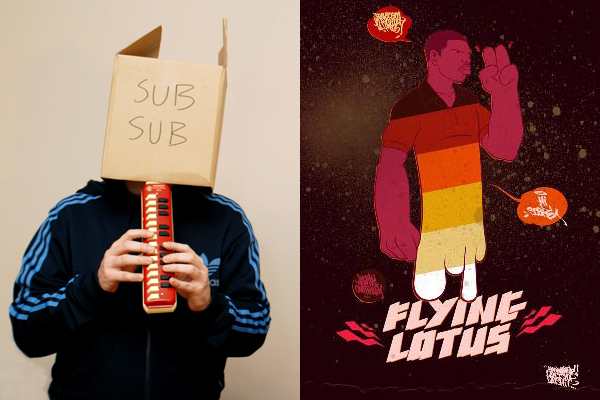
Plug One: What makes you focus on beat music as opposed to, say, house music, indie-soul or indie-rock?
Mary Anne Hobbs: Within all music that you really love, there is a power, those sonics, if you will, that will touch the very core of your soul. And you can’t quantify it, you can’t put it into words, but it moves you in a way that other pieces of music don’t. I guess that’s what everybody is looking for, ultimately. They’re looking for something that will provoke an incredible spiritual, physical, emotional response. That’s what I find in this generation of producers that I’ve been supporting without question.
If you’re referring to Flying Lotus and, you know, the Brainfeeder crew…It’s interesting, you know, I always say to people that Lotus is like the Hendrix of his generation. He’s really, just absolutely incredible.
I remember the very first time I ever saw him play at Cargo [a nightclub in London]. I was with the press people from Warp, and they said, “Oh, you’ve got to come meet him and say hello afterwards.†To be honest, he left me so speechless I literally couldn’t form a sentence. I thought, I’m going to have to leave the building because I can’t speak to this guy. I can’t figure out what it is I want to say to him. Any kind of vocabulary I have, it’s so insignificant, it’s nowhere near enough in terms of what I want to express to him. I don’t know how to do it. I had to leave the building because I couldn’t speak, you know?
And he touched me in that way that I’m describing. I stood in the center of that room and he absolutely blew my mind. I thought, I’ve never really seen anything like this before in my life. Not that his interpretation is unique; I understand the lineage, I understand where he comes from. I understand the series of influences that are fed into his music at this point. But nonetheless, his own interpretation and delivery is completely unique.
Then I became interested in the family of producers. I seem him very much as a patriarchal figure, if you like, on the West Coast, himself and Daddy Kev, who runs Low End Theory [a weekly event at the Airliner in Los Angeles]. You can see their love, their cherishing, their nurturing and their support of this family of producers. They have been so significant in pushing that entire scene forward and really creating an amazing momentum, y’know what I mean?
Plug One: Do the UK producers, the European producers, the German producers – well, I guess Dorian Concept is Austrian – see Flying Lotus that way, see him as a kind of figurehead?
Mary Anne Hobbs: My audience definitely do. They understand the significance of what it is he’s doing. Also, I think they understand that a lot of the younger artists would not probably be coming through quite so quickly if it hadn’t been a consequence of his incredible support and patronage.
The thing is, he’s amazingly modest about all this. He doesn’t really talk about it. He just does it. So it’s myself and people like Kode 9 who talk about it more. He doesn’t really mention it; he just gets on with it. He’s very much a doer of things.
Plug One: Well, I don’t want to paint Lotus as the end-all and be-all, because there are people in the UK that are on his level, right? Like Burial – his album [2007’s Untrue] did very well over here.
Mary Anne Hobbs: I think the person you would put on the same level as Flying Lotus in the UK would probably be Kode 9. I think the two of them have a really interesting friendship and a brilliant, symbiotic working relationship. But Kode 9 is at the helm of what I call the Hyperdub empire. And he’s very much responsible in the same kind of way for bringing through a lot of absolutely incredible young producers, including Burial. People like Cooly G, Ikonika, Darkstar and Zomby, too. There’s a whole raft of young producers that he is championing and supporting. And with his advice, nurturing, patronage and love, those people have made great moves in the UK.
Burial is kinda different because he’s so insular. He likes to operate in almost complete isolation. He obviously has a relationship with Kode 9 and other people like Lotus with whom he’s been working with, but he likes to separate himself, and he’s not actively involved in the same patriarchal way. But Kode 9 is a real godfather and a real patriarch as I see, and somebody who’s doing incredible work in terms of championing new artists.
Plug One: I saw a documentary on Dogme 95 [The Name of this Film is Dogme95] a couple of years ago, and one of the things they said about Lars von Trier is that he has a very generous personality. Is that the case with you? Do you generally accept all of the music – especially in the past couple of years where there is so much of it – or do you have particular criticisms of how the scene has developed?
Mary Anne Hobbs: I’ve been a journalist, and my days of critiquing or reviewing are behind me. To a degree, there’s a real beauty in being a radio presenter because it means you can put 100 percent positive topspin on everything. It’s a position that I prefer to be in.
I remember when I was working as a writer my editor at the time would quite deliberately send you to interview people and give you records that he knew you really disliked creatively, because he wanted that abrasive critique of something in the pages of his paper. You and I know that people love to read that kind of shit. It was something as a writer that I was very uncomfortable with. I got into being a journalist without understanding the politics of writing and the politics of what the editor required for a magazine. But I never felt comfortable, and I used to have real sleepless nights when I’d written something critical about an artist that I wasn’t really bothered about at all. I thought, I would have much rather spent my time writing something positive about an artist I really cared about.
So now, as a broadcaster, I focus on…I think there’s so much out there, as you say, there are oceans and oceans of incredible producers. And I think I’m in an incredibly privileged position where I no longer have to make a critique of anything. It’s idyllic in a way. I get to build a show of the music I love and believe in every week. But that’s the way I prefer to live. I’m an optimist. For example, I’ve never posted anything negative on a forum in my life. I would rather find something that I love and tell people about that than waste my energy, my time, the few precious moments that God’s given on this amazing planet spitting violent venom about something. If I can, I’d much rather do something positive, yeah.
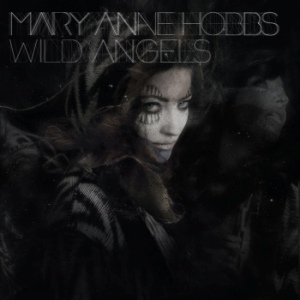
Plug One: What went into assembling Wild Angels?
Mary Anne Hobbs: It began about nine months ago around Christmastime when my parties [Planet Mu Records] called me and said, “We should do another compilation.†It’s very strange; it’s like an entire term in which you would carry a child. I feel like I’m about to give birth to it. So it’s crazy. It’s a long, long journey.
I began thinking about the core sounds that I really love, like techno, dubstep and alternative hip hop. I thought, I want to try and stretch beyond those sounds and into the future, and I want to try and represent artists who are quite literally building their own causeway, brick by brick, forward from those core sounds. So you will get a sense of the type of trajectories shooting out from different tangents from these core genre sounds, if you like, and yet still build a symbiotic relationship between the tracks. There is a nice, easy flow of sound.
That was the idea, really, I guess. For me, it’s all about progression. It’s trying to second-guess the future.
Discography:
Warrior Dubz (Planet Mu) (2006)
Evangeline (Planet Mu) (2008)
Wild Angels (Planet Mu) (2009)
www.myspace.com/maryannehobbs
www.bbc.co.uk/radio1/maryannehobbs
www.facebook.com/pages/Mary-Anne-Hobbs-on-Radio1
www.youtube.com/maryannehobbstv
twitter.com/maryannehobbs
Mary Anne Hobbs photos by Shaun Bloodworth.
[Kode 9 and Flying Lotus collage] Kode 9 photo courtesy of Backspin Promotions. Flying Lotus illustration by Ques.

